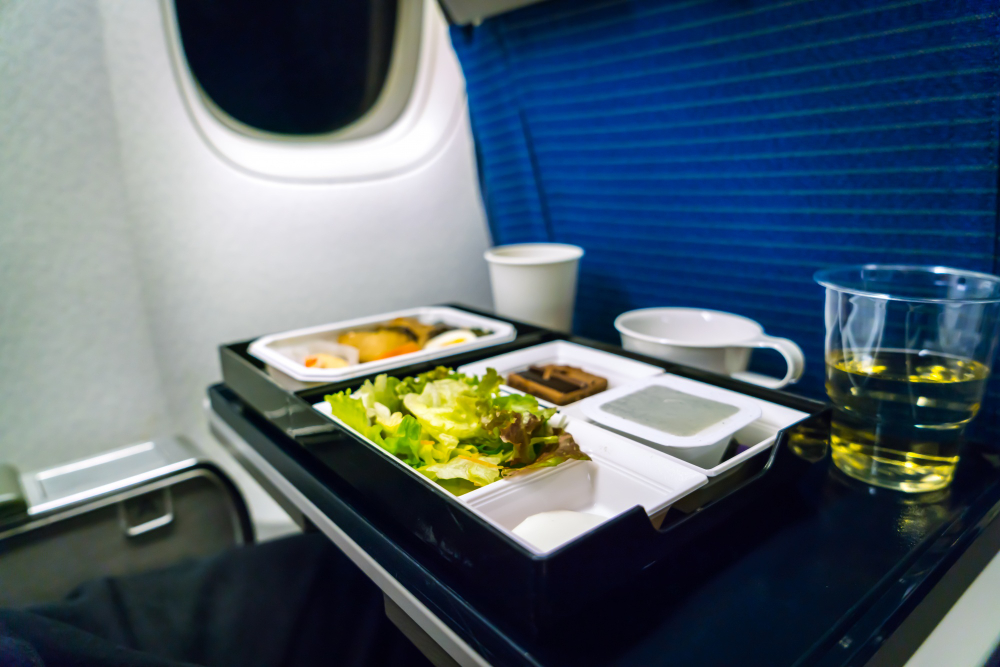Flight catering services play a vital role in shaping the overall passenger experience during air travel. While comfort, speed, and convenience often take center stage, the quality and safety of inflight meals are equally crucial. Whether passengers are traveling on private jets or commercial airlines, the food served onboard significantly influences their satisfaction, well-being, and perception of the airline or charter service.
In the realm of aviation, the standards for flight catering services go beyond the culinary aspect. Ensuring safety, hygiene, and adherence to strict regulatory guidelines is paramount. The complex logistics involved in preparing, transporting, and delivering meals at 30,000 feet demand rigorous processes and uncompromising attention to detail. This blog explores why quality and safety are indispensable in flight catering and how these factors contribute to a superior inflight dining experience.
The Significance of Quality in Flight Catering Services
Quality in flight catering begins long before the meal reaches the aircraft. It starts with the sourcing of ingredients—selecting fresh, premium, and often locally sourced produce ensures that the foundation of every dish is strong. High-quality ingredients translate directly into better flavor, nutrition, and presentation, which elevate the overall dining experience.
Flight catering services invest heavily in culinary expertise. Skilled chefs craft menus that are not only delicious but also carefully adapted to the unique conditions of air travel. The lower pressure and drier atmosphere inside the cabin can dull taste buds and alter textures, so recipes are adjusted to maintain bold flavors and pleasing consistency. This attention to detail ensures that passengers enjoy meals that rival fine dining experiences on the ground.
Furthermore, quality extends to the packaging and presentation of meals. Attractive, hygienic packaging preserves freshness while allowing for elegant presentation when served. In luxury aviation, where expectations are exceptionally high, meal presentation contributes significantly to the perception of service excellence.
Safety: A Non-Negotiable Standard
While quality can vary based on culinary creativity and service level, safety in flight catering is non-negotiable. The aviation industry operates under stringent regulations to ensure that food served onboard is safe for consumption and free from contamination.
Food safety in flight catering encompasses multiple stages. Starting from strict hygiene protocols in kitchens where meals are prepared, to maintaining proper temperature control during transport and storage, every step is monitored meticulously. Temperature-sensitive foods must be kept within precise ranges to prevent bacterial growth. This involves the use of refrigerated vehicles, temperature-controlled storage facilities, and specialized containers designed for air travel.
Personnel involved in the preparation and handling of inflight meals undergo rigorous training in food safety practices. Regular audits and certifications verify compliance with health regulations. This structured approach reduces the risk of foodborne illnesses, which can be particularly hazardous when medical resources are limited during flight.
Challenges Unique to Flight Catering Services
Flight catering faces challenges unlike those in traditional catering environments. Meals must be prepared hours before consumption, transported safely, and reheated or assembled onboard with limited kitchen facilities. These factors require specialized knowledge and innovative solutions.
For instance, the logistical coordination involved in delivering fresh meals to multiple flights departing simultaneously demands precision timing and efficient supply chains. Any delay or error could compromise food quality or safety. Flight catering providers use advanced tracking systems and contingency planning to manage these complexities effectively.
Moreover, the diverse dietary needs of passengers—from allergies to religious restrictions—add layers of complexity. Flight catering services must accommodate these requirements without compromising safety or quality, ensuring every passenger receives a meal that meets their standards and is safe to eat.
The Role of Hygiene and Sanitation
Hygiene and sanitation are foundational to safety in flight catering services. Workspaces, utensils, storage units, and transport containers are cleaned and sanitized rigorously. The use of disposable gloves, hairnets, and protective clothing by kitchen staff minimizes the risk of contamination.
Sanitation protocols extend to the aircraft galley, where meals are stored and served. Crew members receive training in handling food hygienically, including correct reheating procedures and waste disposal. This comprehensive approach safeguards passengers against health risks and maintains trust in the catering service.
How Quality and Safety Enhance Passenger Experience
When flight catering services prioritize quality and safety, passengers benefit in multiple ways. Nutritious and flavorful meals contribute to comfort and satisfaction, especially during long flights. A well-prepared meal can alleviate the fatigue and discomfort often associated with air travel, helping passengers arrive at their destinations refreshed.
Safety ensures peace of mind. Passengers trust that their meals are prepared under strict hygiene standards and are free from contaminants. This trust is essential for maintaining a positive relationship between airlines or private jet operators and their clientele.
Conclusion
The importance of quality and safety in flight catering services cannot be overstated. Together, these elements form the cornerstone of an exceptional inflight dining experience that meets the high expectations of today’s travelers. By combining culinary excellence with rigorous safety standards, flight catering transforms meals from a simple necessity into a luxurious highlight of air travel.
As the aviation industry evolves, flight catering services will continue to integrate new technologies, sustainable practices, and personalized offerings. However, the commitment to delivering safe, high-quality meals will remain constant—a vital promise that ensures passengers enjoy every moment of their journey, from takeoff to landing.
